The latest statistics from the World Health Organization estimate that over 260 million people across the world struggle with anxiety and chronic stress– a figure that is projected to grow exponentially in an age of increased political tension, economic upheaval, and post-pandemic rebuilding.
While shocking, this figure isn’t necessarily surprising. In the digital age, information comes at us so quickly that there’s rarely enough time for us to internalize and process it (let alone to cope with our stress in a thoughtful way).
The true nature of reality is defined by equanimity, calm, and goodness– but we aren’t always given reasons to see that.
-
My Background
I’ve struggled with moderate to severe anxiety ever since I witnessed an act of gun violence in South America about 12 years ago. Six years ago, my stress and anxiety became so pronounced that I was diagnosed with PTSD.
As a writer who travels all over the world for my work, this was a trauma I was wholly unprepared to address.
I started seeing two therapists regularly, and I am very open about this experience. By working actively to address my PTSD, I have seen my anxiety symptoms subside– though it is likely still something I will have to consciously work on every once in a while throughout my life.
-
About This Guide
Over the years, I’ve been privileged to work with some of the world’s best therapists and healers. As a writer who focuses on culture and quality of life, I’ve also gotten to interview some of the world’s most prominent wellness experts, who have given me advice that was too valuable not to share.
This comprehensive guide to anxiety relief is backed by extensive scientific research. It also contains advice from seasoned experts who know a thing or two about stress management. When consciously applied, these tips can be life-changing. I encourage you to try.
Don’t worry if some of the below recommendations don’t work for you. Everyone’s brain chemistry is different, and sometimes you have to try out a few things before you figure out what works for you personally. This guide is just a good place to start– it’s meant to be a reference that you can come back to again and again. I hope it brings you peace in the moments you need it most.
***
Have Chamomile Tea in the House
Chamomile tea calms the nervous system, and some evidence also suggests that the act of making tea is soothing to the anxious mind because it’s a simple task that keeps your hands busy.
Before I met my husband, I lived alone in a three-bedroom apartment. I used to make tea whenever I was home by myself and feeling anxious, because it gave me a reason to keep walking back and forth into the kitchen. (For me, walking around in moments of panic is very helpful, because it keeps me from feeling trapped.)
Ice Your Wrists
A highly regarded therapist once told me that plunging your hands into ice water in the middle of a panic attack actually, physically calms you down by slowing down your thoughts. New and emerging research supports this claim.
Apparently, there are nerve endings in our hands and wrists that connect to the part of our brains that make our thoughts swirl, and chilling our hands triggers a reflex in the parasympathetic nervous system that slows down breathing and heart rate. Naturally, we’re forced to slow down our thoughts; it’s an unconscious reaction.
-
The Science of Chilling Out
As Peter Bongiorno, ND, LAc explains in an article about hydrotherapy in Psychology Today, exposure to cold has also been shown “to activate the sympathetic nervous system, [which] will increase the blood level as well as brain release of norepinephrine– an adrenal hormone that can help depressed people feel more ‘up’ naturally.”
Cold water therapy has also been shown to “increase production of beta-endorphins, the ‘feel good’ molecules that give a sense of wellbeing.”
This is why, after the initial temperature shock, a cold shower actually feels invigorating.
Related: 4 Mental Health Bath Recipes to Improve Wellbeing with Hydrotherapy.
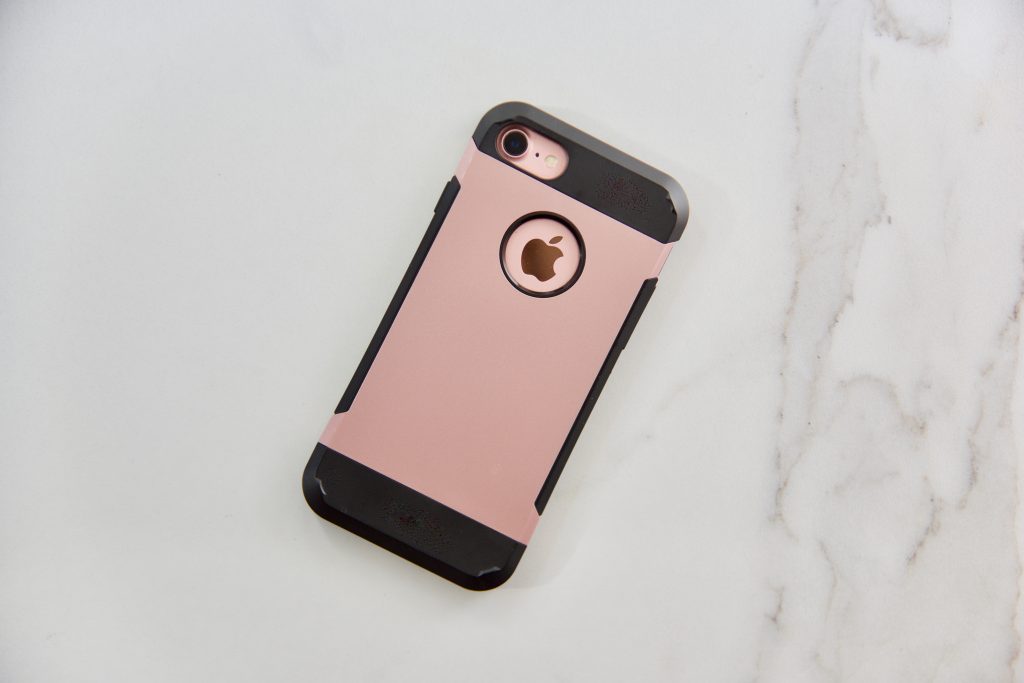
Disable News Updates on Your Phone
No one needs to seek out news in the Internet Age. The news will come to you, through the simple osmosis of being online.
On a daily basis, we are bombarded with screens: walking by digital signs in airports, looking at TVs in the back seats of cabs, or reading digital signs. Actively disabling the News app on your phone relieves you from the stress of having bad news interrupt the flow of your life. Almost all headline news events are beyond our control anyways– mass shootings, natural disasters, political travesties, etc. Reading lurid details is never a good thing; it’s merely a guaranteed way to get even more upset.
But unlike avoiding the Internet (which is impossible), reading the news is optional. Studies show that people who avoid the news lead much happier, more creative, more meaningful lives (surprise, surprise). Accordingly, many therapists suggest that people who are anxious, depressed, or experiencing burnout should avoid the news altogether.
-
Something to Keep in Mind
Decency and civility are not news. This, in turn, tends to distort reality for those who seek news as a subconscious barometer of what’s going on in the world.
If something is really urgent, like a natural disaster headed your way or an active shooter in your neighborhood that you need to know about immediately, people will tell you in real life. You’ll find out– trust me.
By disabling news alerts on your phone, you free up all that mental clutter that is bound to find another way to you anyways, so that you can get on with your life and have even more moments of peace in the middle of what often is, for most people leading modern lives, a very busy existence.
If you’re wary of going cold turkey, then try it for just one day and see how you feel. Most people are amazed at how much more free time and creative energy they can harness from their day when they free up their minds from the needless chatter that is no longer serving it. Once you get a taste of this freedom, it’ll be hard to go back.
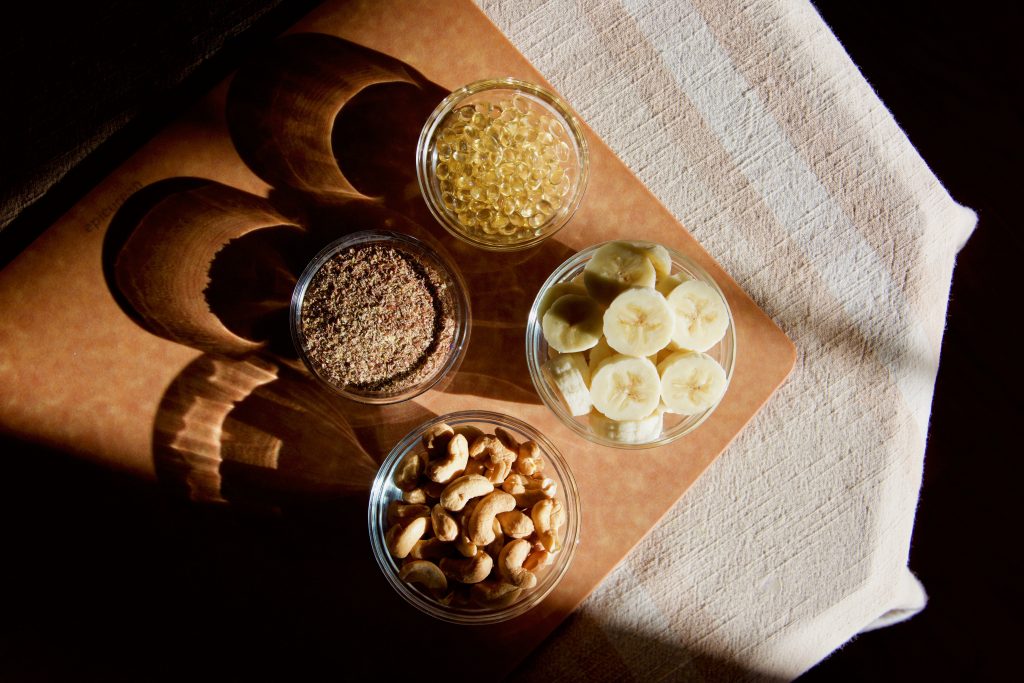
Load Up on Omega 3’s, Bananas, and Cashews
I write more about this in my Anxiety Hacks section, but eating certain foods can be very beneficial for people with even low-grade anxiety. Bananas, cashews, and Omega 3-rich foods like wild caught salmon and flaxseed are three of best and easiest options. They give you the most bang for your buck.
A world-class musician once told me that many performers eat bananas as their pre-performance meal, because bananas are famously good at preventing performance anxiety. Bananas are effective at quelling performance anxiety because they are rich in the amino acid tryptophan, which is converted to relaxation-inducing serotonin in the body. Turkey is also rich in tryptophan, but it’s harder to digest if your stomach is in knots, which is why bananas have become the go-to Game Day breakfast.
Elsewhere on the Internet, there are rumors swirling that “a handful of cashews acts like Prozac in the body,” but sadly this claim hasn’t been studied enough for us to know if that’s true.
What is clear is that Cashews are also rich sources of tryptophan and omega fatty acids, which can trigger serotonin and other mood-boosting neurotransmitters.
-
Supplement Option
New research published in JAMA suggests that Omega-3 fatty acids are associated with significant reductions in anxiety symptoms. This evidence holds up against placebo controls. Participants in the study took 2000 mg of Omega-3 polyunsaturated fatty acids (PUFAs) per day.
What does this mean? More studies need to be done, but taking a PUFA supplement may help your anxiety. Otherwise, make a point to eat salmon more regularly (or mackerel, herring, lake trout, or sardines).
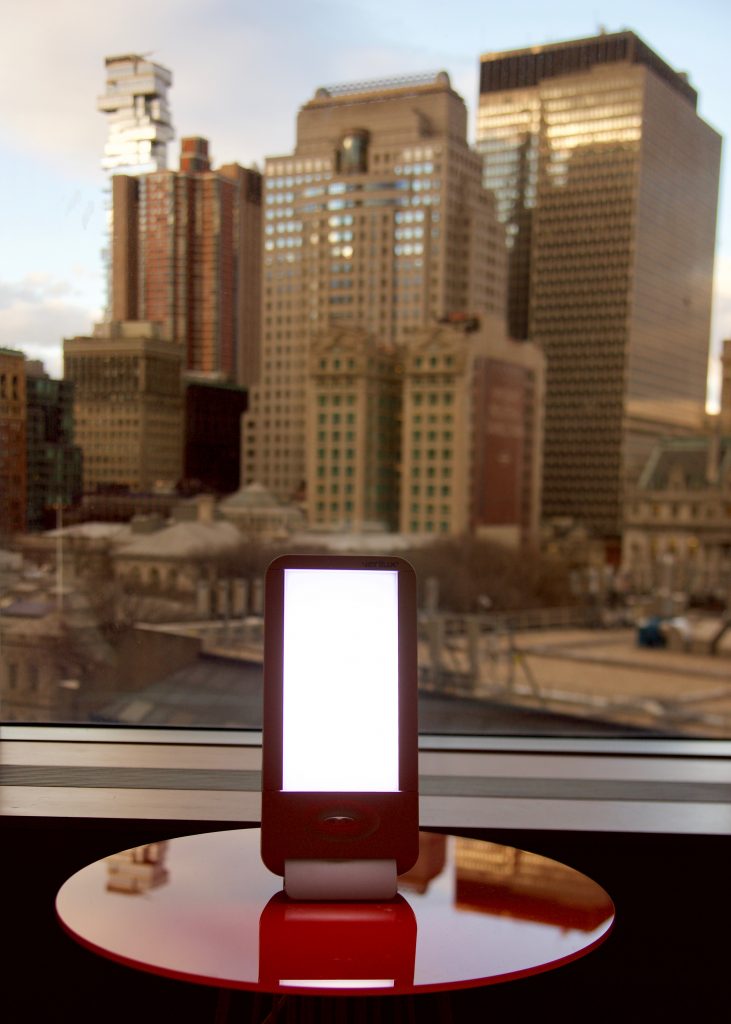
Use a Happy Light
My anxiety definitely gets worse in the winter, and this is likely true for most people who have even mild Seasonal Affective Disorder. I conducted hours of research before investing in my own Happy Light and I find it to be helpful in the winter months.
Happy Lights have a special LED light that mimics sunlight and triggers a dopamine cascade in your brain– that warm, cozy feeling you crave most when you’re feeling blue. You just turn on the light and sit close to it for ~10 minutes a day to get a boost.
I have this light from Verilux, and my husband is now addicted to it.
Meditate Daily if You Can
It cannot be stressed enough that meditation is a proven effective treatment for anxiety, but you really have to do it in those moments when you AREN’T anxious to get the benefit. Otherwise, when your thoughts are already spiraling, your brain may not calm itself enough to meditate effectively.
Meditation is like exercise for your mind. You want to build up mental fitness so that your mind is less likely to drift into anxious thought patterns.
I use three different guided meditation apps because I personally think guided meditation is best— you can follow along with what a person says and it helps the mind focus.
-
Where To Start
The Headspace App, Calm, The Meditation Minis Podcast, and Insight Timer are all great apps for those new to meditation. Read more about them in our guide to the 6 Best Free Meditation Apps on the market right now.
The Headspace App charges a small fee and is very “mainstream”– it’s not spiritual and the meditations are short (5-10 minutes each). If you don’t have a lot of time because of kids or work, and Headspace definitely a good place to start. The app has a free weekly trial for new customers.
I like to recommend The Meditation Podcast and Meditation Oasis for experienced meditators– the meditations are longer, and I personally need to meditate for 20 minutes in order to get the most benefit. However, when I first started meditating I began with 5-minute meditations in the Headspace App. Then, I graduated into the longer MP and MO meditations, which are free and very beautiful.
I like the topics that Mary (the narrator in Meditation Oasis) covers: she has meditations to help listeners cope with pain, sleeplessness, big life changes, trauma, and more. Her narration is very nurturing.
Try This: We’ve earmarked a collection of The Best Free Guided Meditation Videos on the Internet right now. <— Breathe deep, and enjoy!
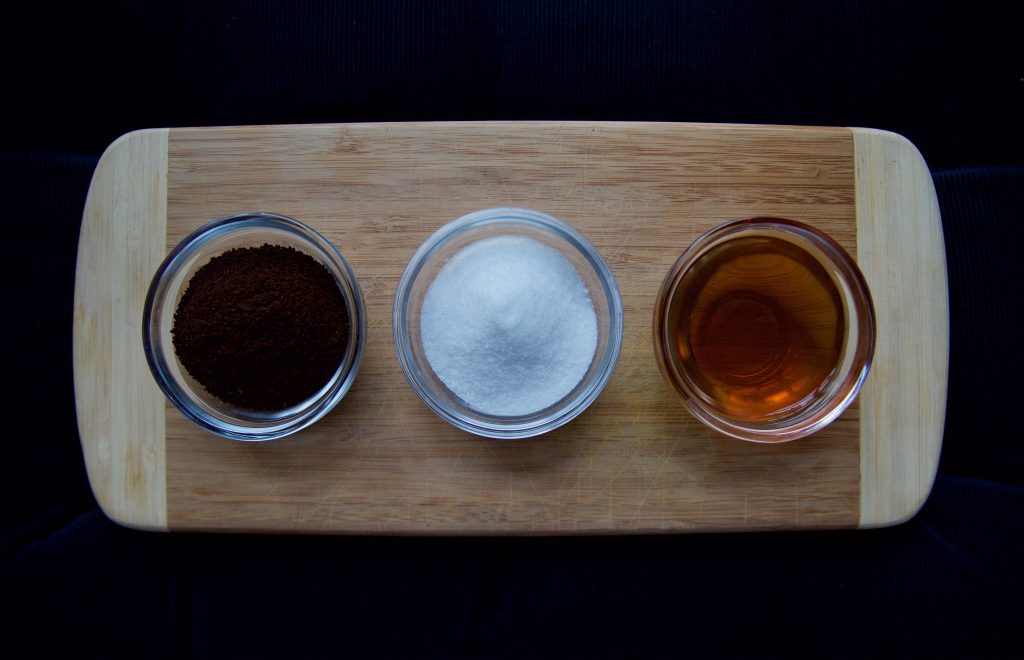
Avoid Caffeine, Sugar, and Alcohol
I could post at length about this topic, but there’s a wealth of research that shows that alcohol, caffeine, and sugar all contribute to feelings of anxiety. All of these substances get your heart racing and are terrible at mitigating and assuaging stress in the long run.
In fact, even though most people reach for these substances in moments of stress, consuming these three can actually make it worse.
-
Alcohol
Booze are especially bad for anxious people. Alcohol is a sedative and a depressant, which alters the levels of serotonin and other feel-good neurotransmitters in the brain. While initially having a drink might induce a feeling of relaxation, this doesn’t last. When Blood Alcohol Levels return to normal, most people experience elevated levels of anxiety as a result of alcohol withdrawal. Colloquially, the people I’ve spoken with call this “the rebound effect.”
-
Caffeine
Caffeine, as you likely already know, is also associated with elevated heart rates and the kind of hyper-alertness that can precipitate feelings of fluster and anxiety. There’s actually something called “Caffeine-Induced Anxiety Disorder” that does not sound fun at all. See if you can swap your morning espresso for a cup of matcha tea, instead. A cup of matcha has as much caffeine as a cup of coffee but without the jittery side effects. Matcha is a rich source of naturally occurring L-theanine, an amino acid that activates the brain’s alpha waves, which results in a feeling of calm. (Read more about the 3 levels of caffeine sensitivity here.)
-
Sugar
Sugar, on the other hand, has been associated with “increased circulating inflammatory markers, which may depress mood.” It also alters the hormone levels that influence mood states, so it’s best to avoid eating sugar in excess since this increases risk of depression, studies show.

Surround Yourself with People as Much as Possible (But Only Those Who Don’t Stress You Out)
Positive human contact is really important in warding off bad thoughts. It’s difficult if you live alone and are having anxiety at night, but if it’s daytime and you are in the position to do so, even going to a store and talking to another human can be helpful. Or try calling someone, even if it’s a store, and just ask a question.
The worse anxiety I’ve ever had in my life came when I was alone in a hotel room with no immediate human contact. I went downstairs to the receptionist and asked her a question about the hotel’s rewards program, just to hear the sound of someone else’s voice.
I’ve found that having too much pride in the moment will only make a panic attack worse. Don’t be afraid to speak up, ask for help, or shamelessly seek distraction!
Try The “Step Breath” (And Make Sure to Belly Breathe)
If you are in a real fit of anxiety, try a breathing pattern called the “step breath.” This is a “hack” that another skilled therapist once showed me. The process involves taking a few tiny inhales, pausing to hold your breath once your lungs are full of air, and slowly exhaling and deflating your lungs like a balloon.
It goes like this:
Inhale 7 times, taking small “sips” of air each time, and counting to 7 (one number for each breath). Make sure to breathe deep into your low belly, rather than puffing up your chest.
Hold your breath for 4 seconds.
Then, slowly exhale for 8 seconds, counting it out in your mind as you exhale (“8…7…6…5…4…3…2…1”). Then, reassess how you feel. Notice if you feel better and be conscious of that. Repeat as many times as necessary to really stay present, focusing on the breath.
Remember Fundamentally That You Are Safe
At the very least, you have to tell yourself in moments of unnecessary panic that you are safe. You should try to remember this even if it doesn’t feel that way. And reinforce it as much as possible to yourself in those moments when you aren’t feeling anxious. Gratitude journaling is great for this, because it gives us a daily reminder of our own wellbeing.
Coloring is also helpful, because it requires gentle attention and gives you something to do with your hands. (Studies also show that coloring reduces anxiety and improves mood.)
Incorporate Turmeric
Turmeric decreases inflammation in the body, and evidence suggests that turmeric is really good for both anxiety and depression because of the anti-inflammatory effects it has on the brain. (Google it!)
Curcumin, the active ingredient in Turmeric, has been linked to improved depression and anxiety outcomes in almost all tested populations, and there have been notably few if any side effects.
While we need more research to draw firm conclusions about the efficacy of turmeric supplements for stress management, it can’t hurt to start integrating a little more turmeric into your diet. You don’t even have to take supplements– try making our Stress-Busting Turmeric Popcorn.
Pro Tip: Turmeric becomes more bioavailable when combined with black pepper and Vitamin C. Try sprinkling some turmeric into a tomato-based dish that already requires salt + pepper.
Related: Read about 10 other effective, research-backed herbal remedies for anxiety, here.
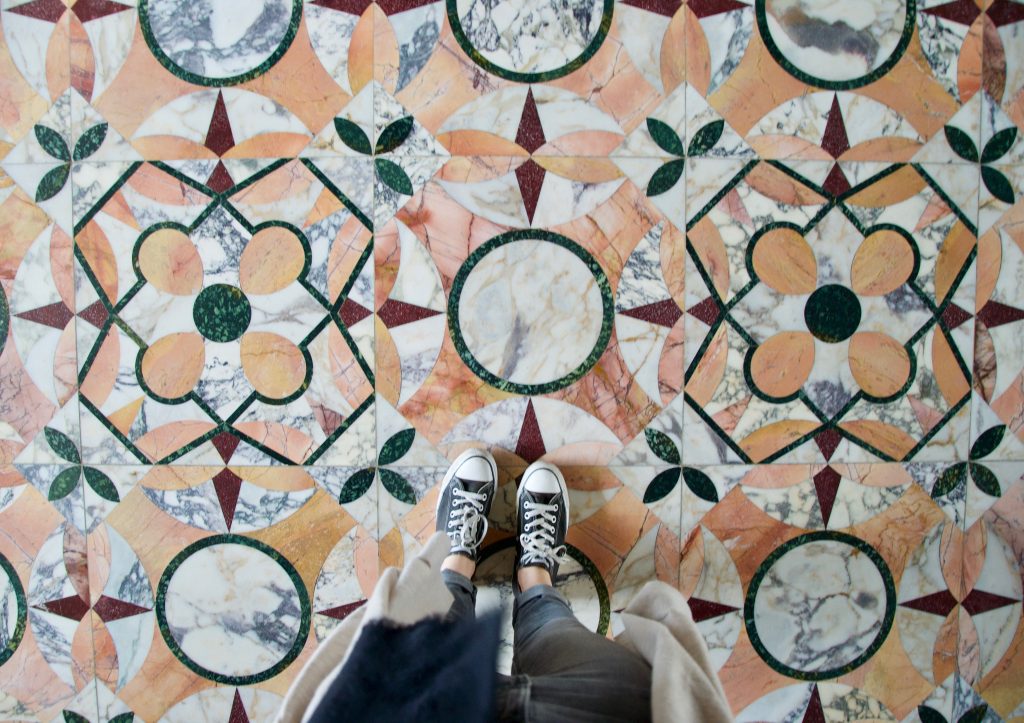
Know Your Patterns
For most people, anxiety is worse at night and in the early mornings than it is throughout the day (generally speaking). To figure out when you need the most support, it helps to keep a journal of what is triggering you.
Do it for a few weeks and see if there is a pattern in the thoughts, ideas, or circumstances that lead you to anxiety or stress.
For example, if you always experience your anxiety in the morning, maybe you should ease off the coffee. Or, if you experience work-related anxiety late at night, maybe you should consider not reading your email before bed, or tackling the work-related problem head on.
Either way, regardless of what findings emerge, talking over any patterns you notice with a trained therapist can also go a long way towards helping you learn how to self-soothe.
Once you can figure out your triggers, you can learn to address them. If you find yourself avoiding certain scenarios, that’s avoidance behavior and should be a red flag. The things you avoid are the things that you will eventually have to “lean in to” in order to fix.
Read more about how to break unhelpful habits in our Life Coaching section, or consult this 5-Step Guide for Identifying Misplaced Emotions.
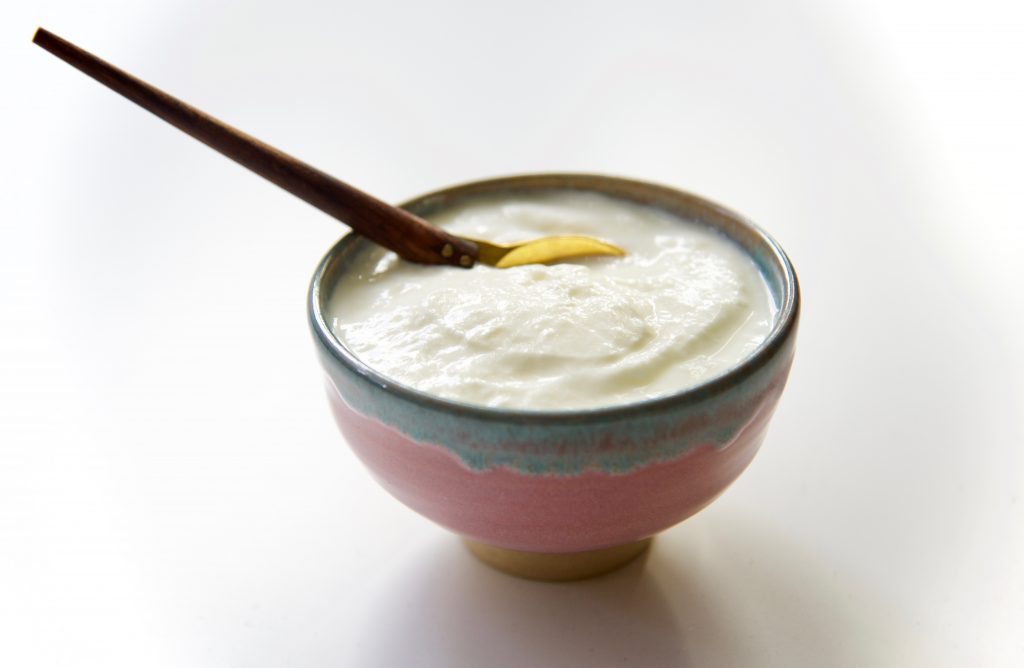
Protect Your Gut Flora
Whether you’re drinking bone broth or kombucha, eating yogurt, or supplementing with probiotics, there are a number of easy ways to keep your gut flora healthy. But did you know that this also benefits your brain?
Emerging research suggests that there’s a strong mind-body connection to gut flora. Irish researchers have shown that increasing the gut presence of one particular strain of probiotic bacteria, Bifidobacterium longum, can reduce anxiety, stress, and depression.
This emerging field of research has dubbed the bacteria that affect your mood, “psychobiotics”, and you can read more about them here. Science buffs can read the full study here.
-
Mitigate Bad Belly Habits
If you can’t bring yourself to take any proactive measures to ensure your gut, then you can also just cut out behavior that has a negative effect.
For example: never take Advil or Ibuprofen on an empty stomach, as it gnaws away at your stomach lining. Many of us know this, but we ignore the manufacturer advice if we are busy. Or, we don’t feel like drinking a full 8 oz glass of water when we take a pill. Still, these little efforts go a long way to improve guy vitality in the long run.
It also helps to minimize the use of antibiotics as much as possible– for example, in the instance of a sinus infection, which is often likely to clear itself in 7-10 days on its own, no prescription needed.
Ultimately, even if you don’t feel the acute benefits of improving your gut flora, it helps to keep yourself well in this regard because chronic, persistent anxiety can actually weaken your immune system– in which case, you’ll need all the beneficial bacteria you can get.
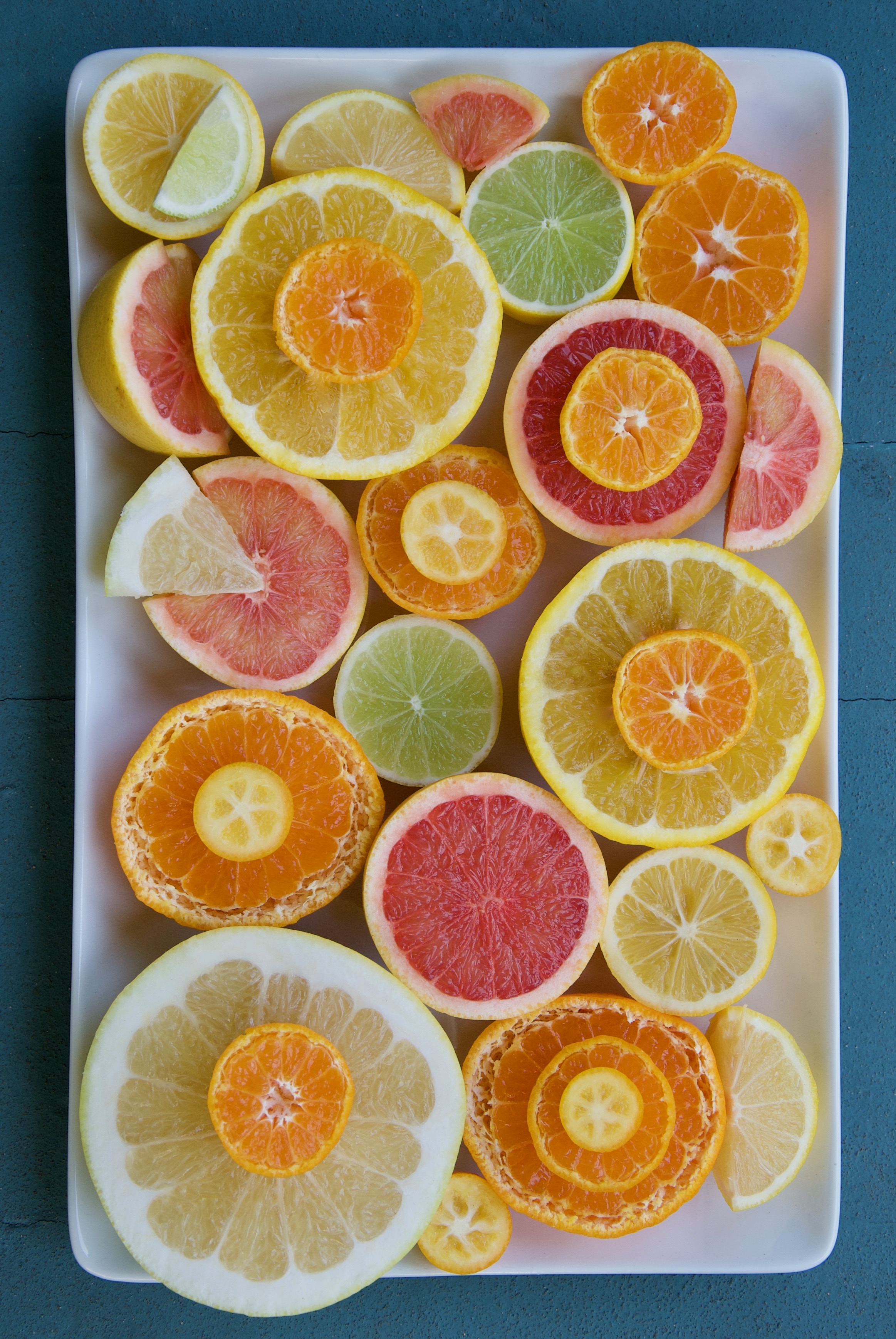
Try Aromatherapy (Orange, Lavender, and Citrus Scents are Helpful)
Many studies show that the smell of citrus helps quell anxiety. When I’m anxious I try to peel an orange or smell something citrus-y. In the winter, try making this easy calming lavender body butter.
If you’re a nervous flyer, I suggest investing a bottle of pure, organic lavender oil or something like Herban Essentials orange wipes, which work really well for me. I don’t travel on planes without them, because it’s also non-toxic hand sanitizer.
When I’m stressed on the go, I’ll use a lavender wipe to freshen up. Then, I inhale three to five slow, deep breaths of the scent before I throw it out. For whatever reason, this ritual really helps me on turbulent flights.
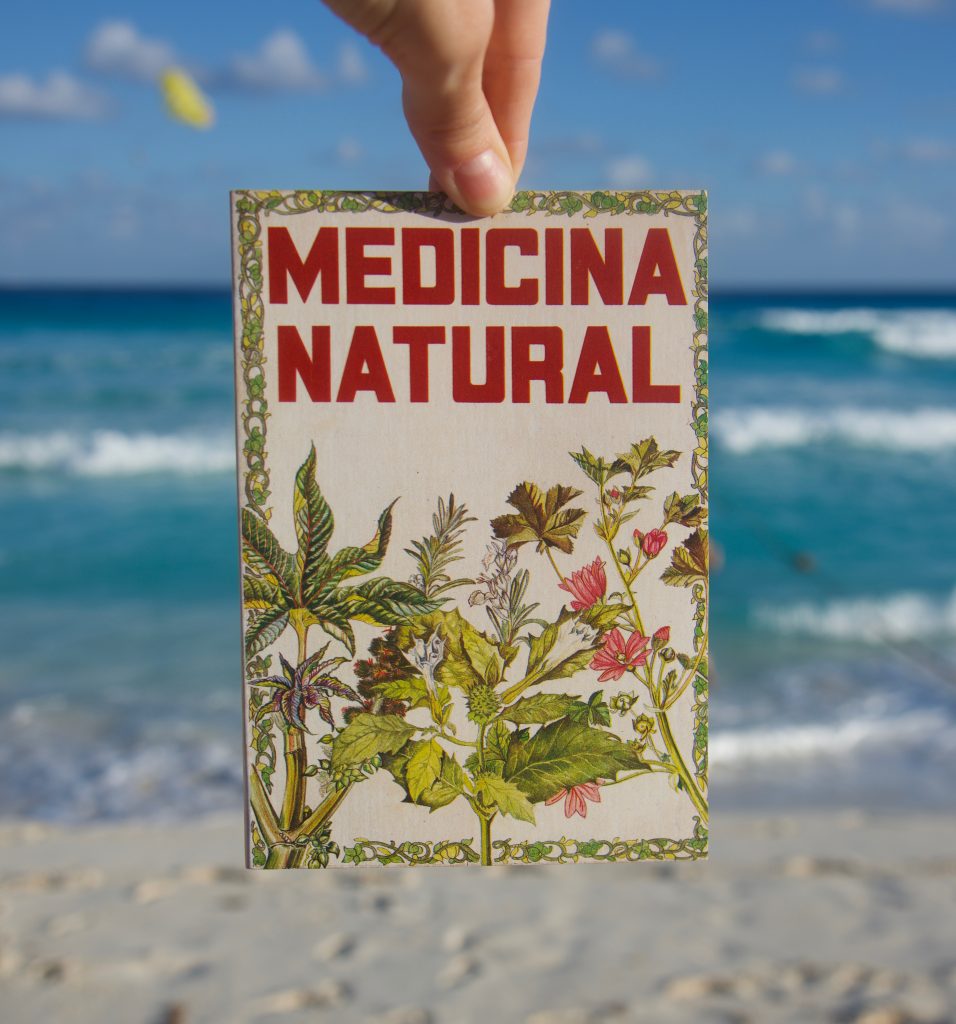
Herbal Remedies to Use with Care
Tulsi tea is very good for anxiety, as is a new, gentle supplement called L-Theanine. Astralagus, ashwagandha, cordyceps, milky oats, kava, catnip, CBD oil, and chamomile each have their own respective benefits, as well. All are very gentle herbal remedies. (There are fun, easy recipes for cooking with these active ingredients in my Mood Recipes section.)
Tea is a gentle way to start if you’re looking to pursue natural anxiety remedies. HOWEVER, if you are a new mom or are currently taking other medications, be sure to ask your doctor before trying any new supplements of the above.
-
Ease Your Way In
If you want to try natural remedies for anxiety, I recommend starting out with chamomile tea and turmeric supplements. If those give you relief, you can phase up to drinking tulsi tea or catnip tea (“the hard stuff,” as I like to joke, as these teas are perfectly gentle, just a little more targeted).
Catnip tea is great for people who experience their anxiety in their gut. For example, if when you get nervous you feel like your stomach is in knots– or if you feel like you need to use the bathroom or throw up (or both!)– then catnip tea can be helpful.
I recommend buying fresh catmint at the farmers market or an herb shop. Simply air dry the leaves, crumble them up, and put them in a tea bag for brewing. If that’s too involved, Alvita sells cheap, organic catnip tea.
If you experience your anxiety in the chest– e.g. shortness of breath or heart racing, then try tulsi tea. Tulsi, also known as Holy Basil, is often blended with peppermint and Organic India makes a blend that I like.
Related: The 10 Most Effective Herbal Remedies for Anxiety (& The Best Ways To Use Them).
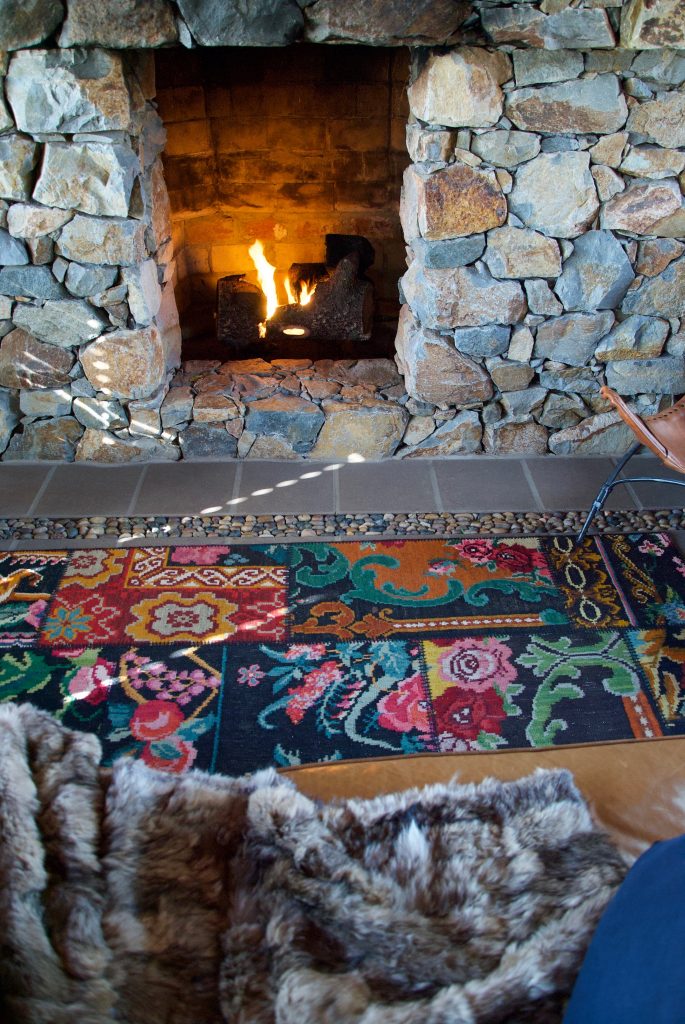
Keep Warm
Take baths, bundle up, and drink hot liquids often to keep yourself from getting a chill in the winter or in a cold office space. Mind follows body, so if you are physically uncomfortable, your body tenses and your brain is more apt to worry.
Wearing a scarf is an easy and reassuring way to nurture the body in two of its most vulnerable places. The neck and shoulders, which are epicenters of tension for 80% of the working population, especially if you spend much of your day on a computer.
Related: 5 Great Eco-Friendly Comfy Clothing Companies.
Stay Fit
Also, when it comes to anxiety, the benefits of exercise cannot be understated. Exercise is essential for mental health. Exercise helps diminish anxiety and depression symptoms by improving circulation to the brain, which induces a cascade of endorphins and enkephalins, also known as ‘happy hormones’. Regular exercise also increases feelings of satisfaction and wellbeing. (You can read our related article about “Running Therapy” in Los Angeles here.)
Some Hippie Things
-
Lay with your legs upside down against a wall to elevate your feet above your head.
This helps calm nerves and encourages a good mood; it also relieves gravitational stress on your valves and circulatory system (always a good thing).
-
Listen to “The World’s Most Relaxing Song,” above.
A British ambient band named Marconi Union collaborated with sound therapists to create a song called “Weightless,” which many in the scientific/audiology community have deemed “the world’s most relaxing song.” It has a cult following on the Internet. (FWIW, I listen to this song when I’m alone and worrying about something, and it knocks out my anxiety almost every time. It is now an essential part of my personal coping arsenal.) Learn more about the connection between music and mental health, here.
-
Hold a Copper Ball or a piece of Rose Quartz.
According to crystal healing theory, copper is a very “grounding” earth material, and rose quartz is a highly spiritual stone. Both purport to bring a sense of calm and wellbeing. For a very long time, I rolled my eyes at crystal healing for the same reason I scoffed at homeopathy: because I was incredulous, because we have no scientifically credible evidence that it works. I’m more open to it now, as I think it can definitely be helpful to have something small to hold onto in moments of unease (even if the benefits are just placebo). The idea here is that you simply hold on to the stone with your bare hands (ensuring direct skin contact) for about 15 minutes when you’re nervous. Do this while breathing deeply or doing something that doesn’t require your hands, like watching a movie or talking to a friend.
-
Stream-of-consciousness journaling can be helpful, even if it feels silly in the moment.
To do this, simply grab a pen and paper and start writing out your fears in detail. The simple act of having to articulate what you are feeling will create space between you and your thoughts, and often that’s enough to “break the spell.” It’s amazing how well this works for some people– especially those who have night terrors.
-
Seek out blues, greens, and pinks. Avoid reds.
Studies show that “aggressive” colors like red tend to keep people on edge and freaked out, whereas blues, greens, and pinks tend to calm you down. Sleep psychologists even go so far as suggesting that insomniacs paint their bedrooms blue in order to induce a feeling of calm during sleep. By wearing these colors, or by covering yourself in a blanket that is a calming color (blue, green, pink), you can immediately influence your own mood.
-
Decrease clutter in your immediate surroundings.
Clutter is one of the most subtle causes of stress in the home– just ask Marie Kondo. “Messy desk, messy mind,” as they say. Aim for a clean desk and clean mind. If your surroundings are less “busy,” you’ll have fewer stress cues– like idle paperwork that reminds you of that thing you still haven’t done.
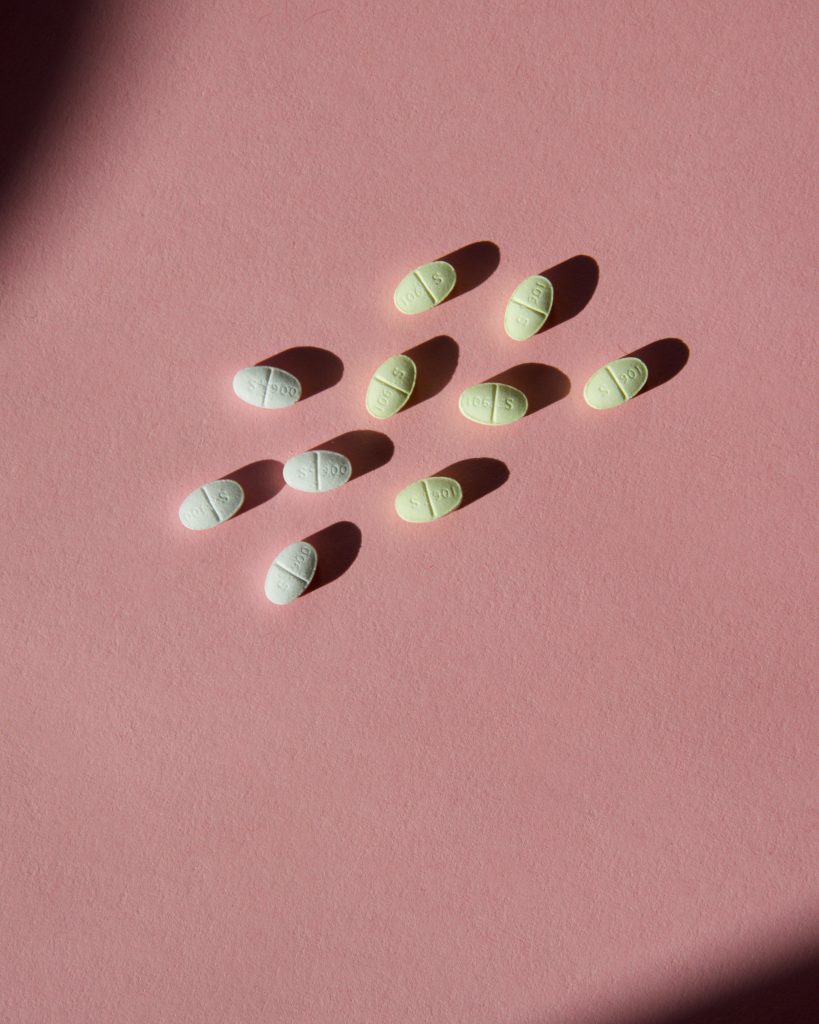
Pharma
If I’m freaking out, the absolute LAST resort for me personally is to take a Xanax (Alprazolam). Xanax the most effective and common anti-anxiety pharmaceutical out there; I have a prescription in case of emergencies. It works for me, and I don’t have any side effects other than it making me sleepy.
I’m only mentioning Xanax because a lot of anxious people are nervous about taking medication.
Many people find success with Xanax, but of course you’ll need to speak with your doctor about whether medication for emergencies is right for you. It takes me about a year to go through a month supply of Xanax, because I use it so sparingly. (Most doctors advise that anyone who has a prescription use the minimum effective dose.)
-
Ask Your Doctor
Unlike many other SSRIs, you don’t have to take Xanax daily. Often, patients just take it as needed in moments of panic— but again, I’m not a doctor, so you’ll need to speak to yours about what is right for you. Sometimes it helps just knowing that you have something in case of emergencies.
Of course, you’ll want to have some thoughtful conversations with your doctor before requesting any new prescription. All of the above tips have helped me in different situations throughout my life, but everyone has to find a combination of treatments and coping strategies that work for them.
Just be willing to modify this plan if/when you realize it no longer works for you. Anxiety is a moving target, but relief is always in sight. You are in control. As long as you know your patterns and are willing to do the work, you’ll feel better in no time. 🙂
***
Related: 25 Helpful Gifts for Stressed-Out People.
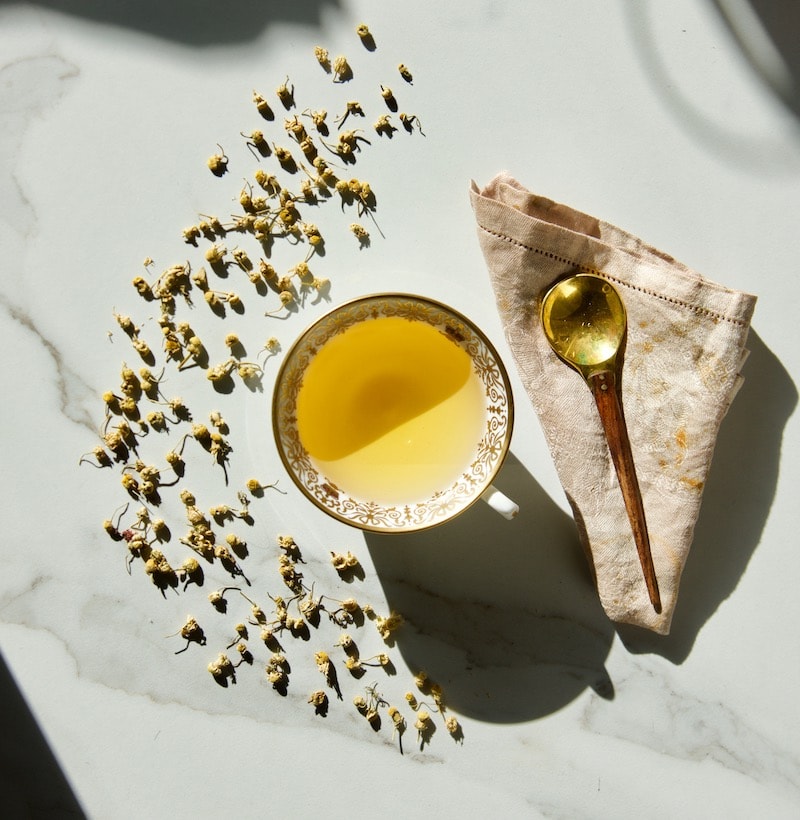
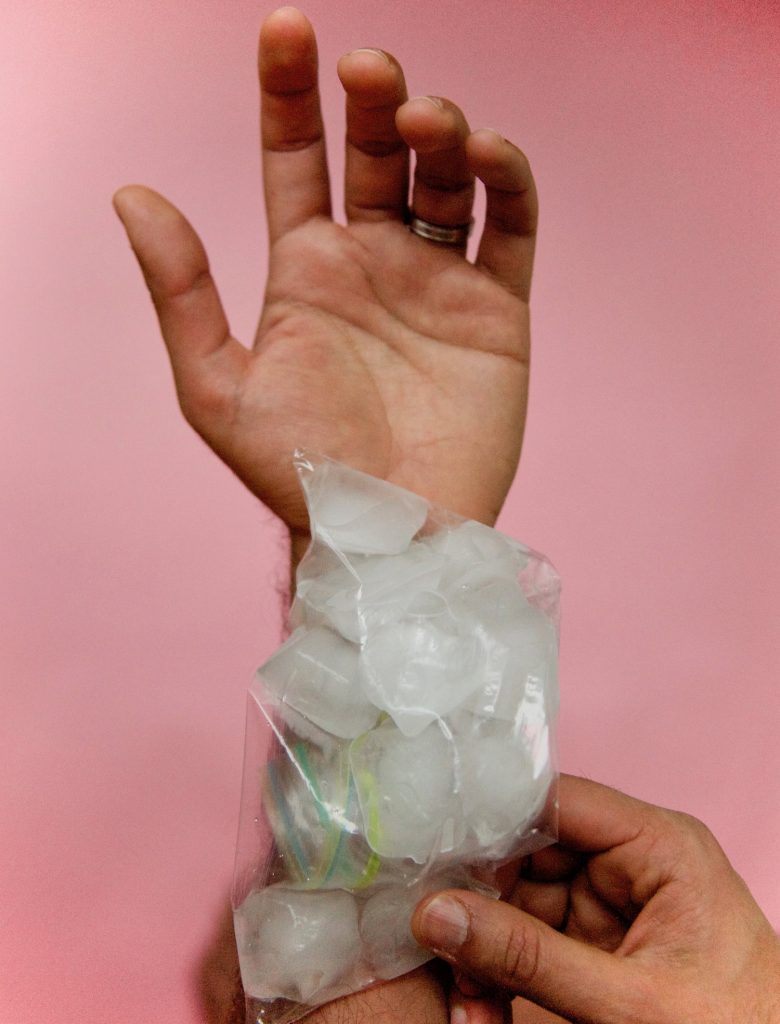
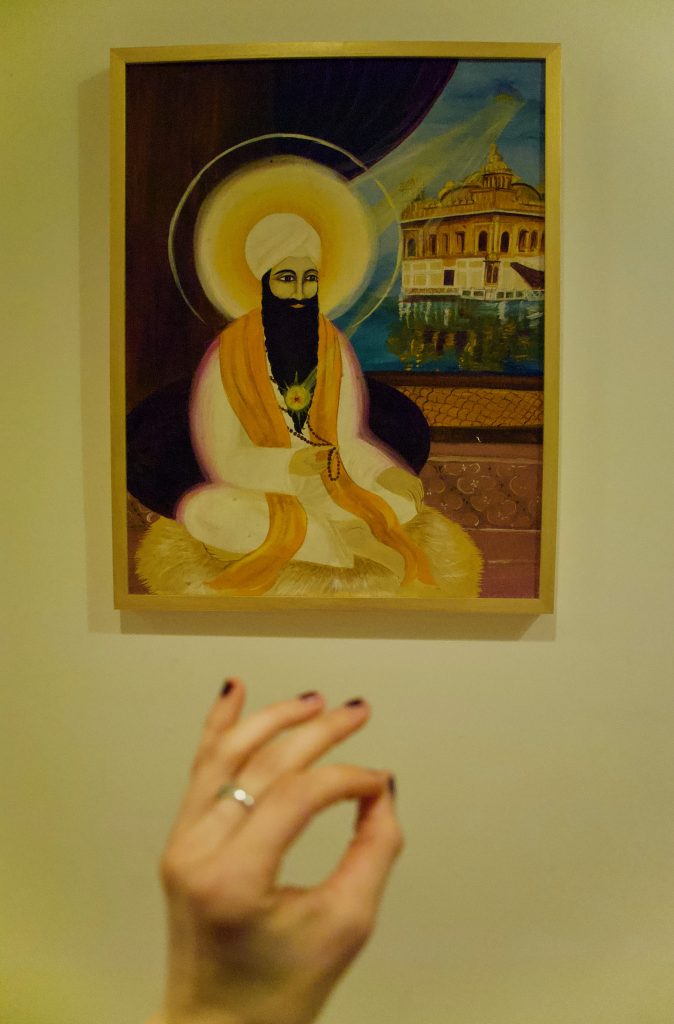
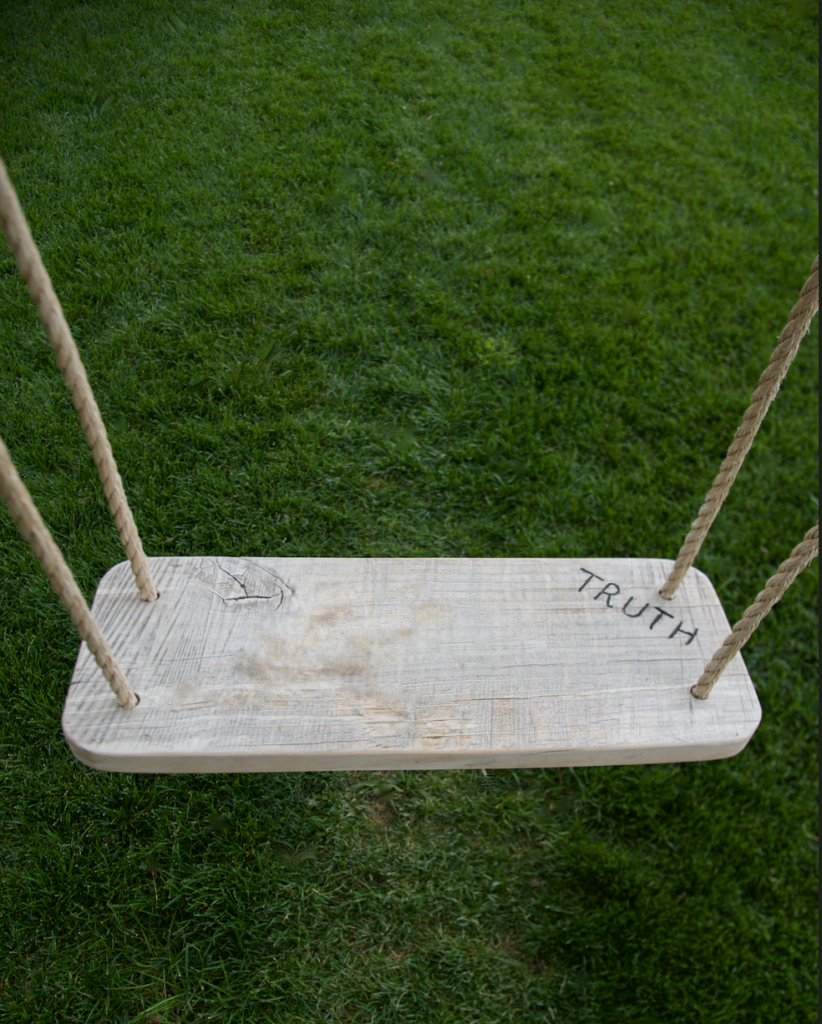
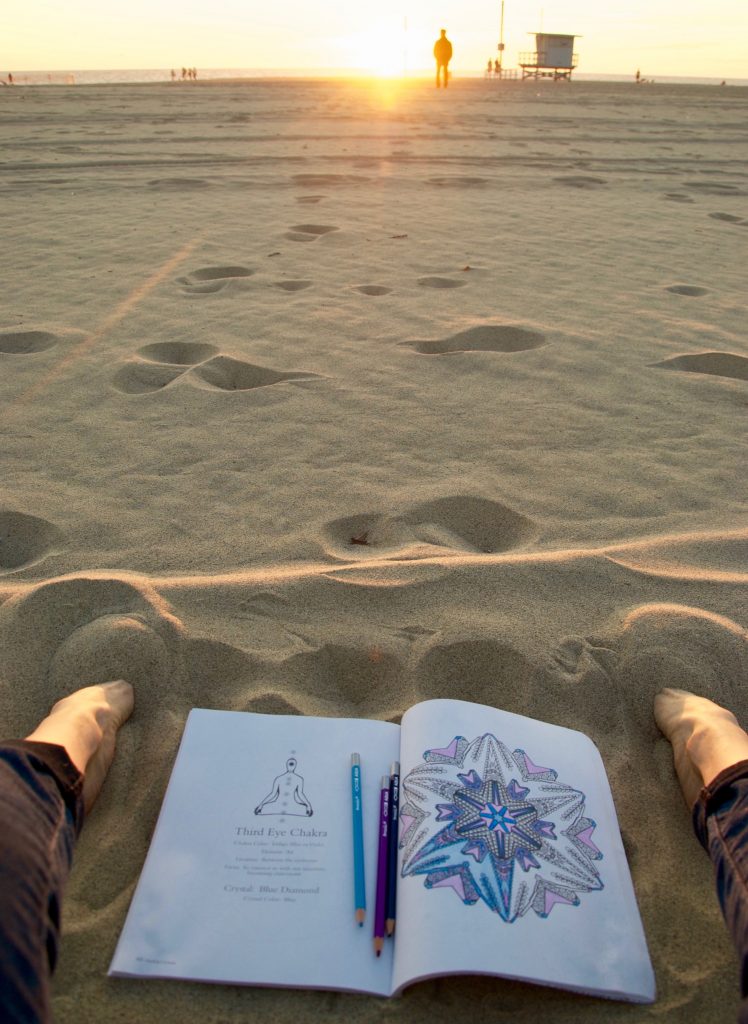
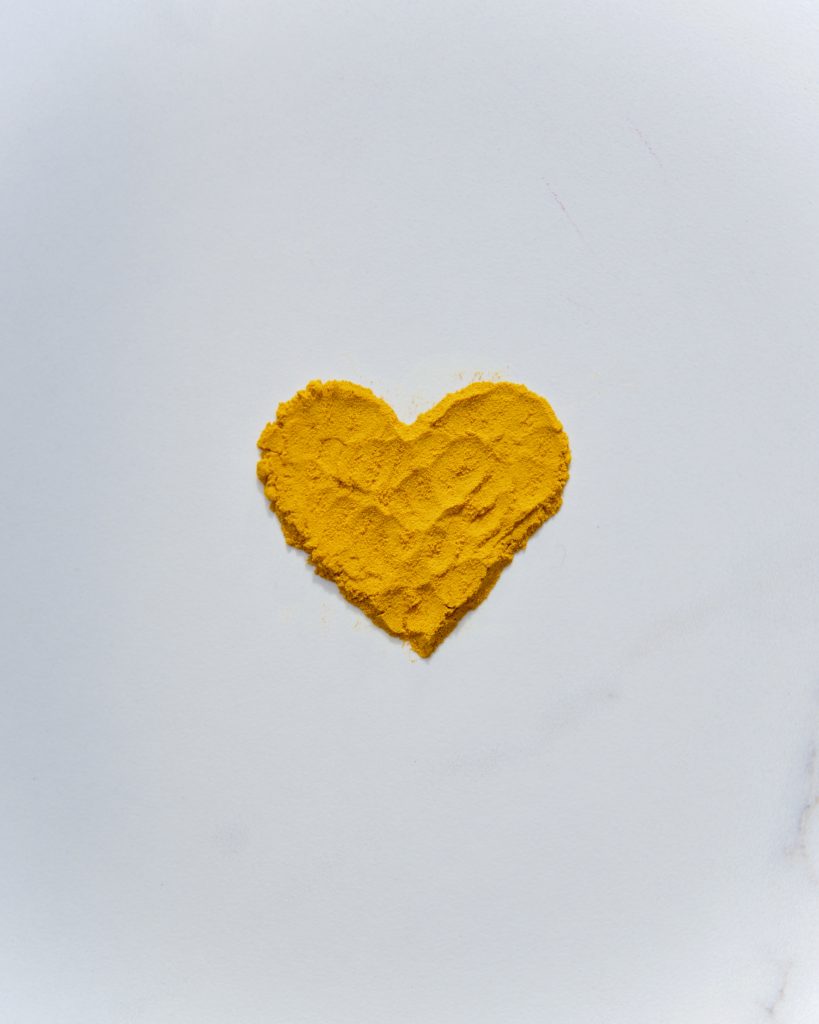
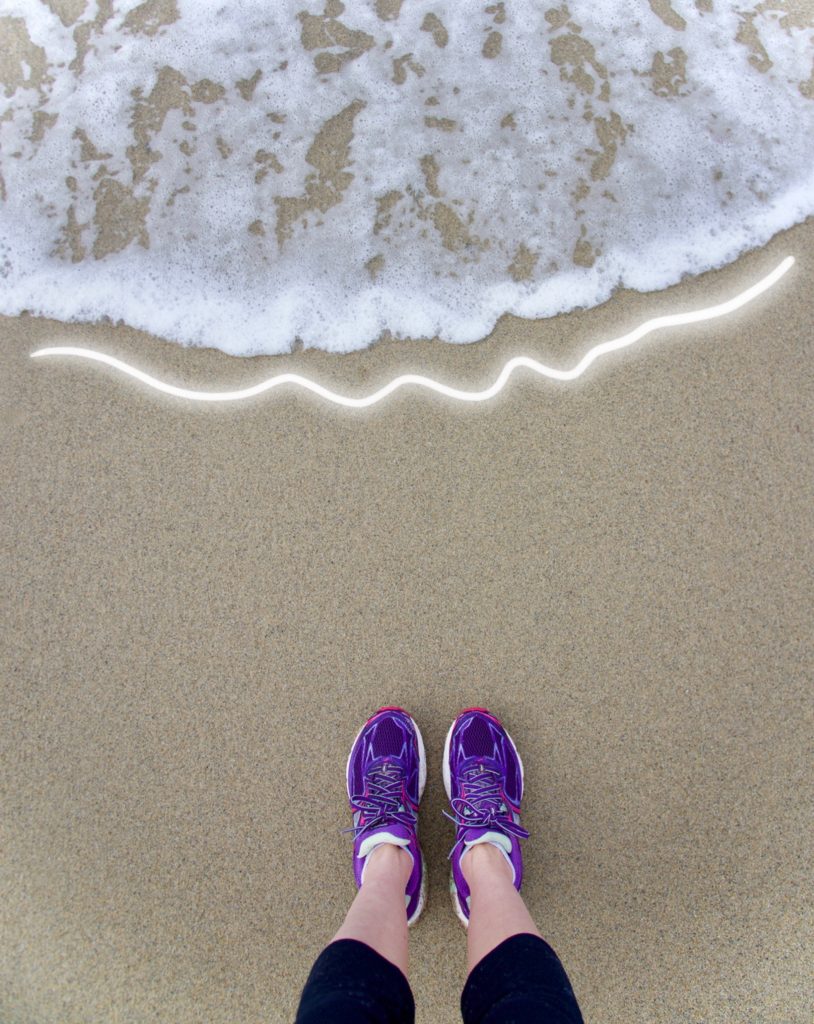
It’s really interesting that you suggested how clutching a ball of copper or rose quartz in your bare palms for 15 minutes reduces your anxiety, nervousness, and stress. This is just the kind of homeopathic alternative that my stressed-out mom needs after every time she goes home tight and taut from her botched deals. Although I can buy her these metal and crystal any time, I’d suggest we visit a local psychologist for a work stress therapy session, too.
Yes, I agree– therapy is an ideal way to cope with anxiety and if it were universally available/affordable it would probably be the single best strategy. Happy that you’re finding value in some of the additional alternatives we’ve outlined here! This guide explores a wide variety of coping mechanisms so that people can find effective anxiety remedies that work for their lifestyle and budget. It also gives people more leg room to try or combine these techniques, which can be very helpful since everyone is different. 🙂